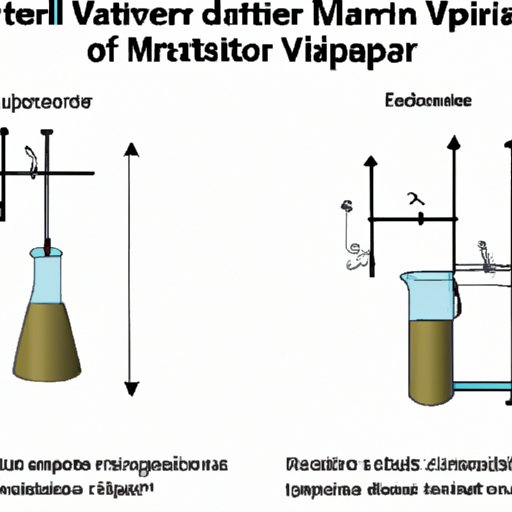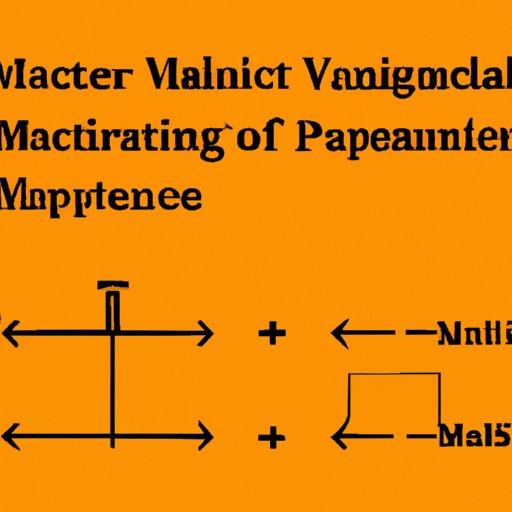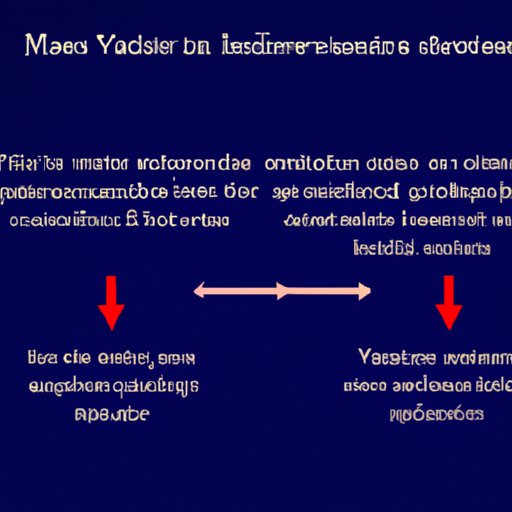Introduction
A manipulated variable is a key element of any scientific experiment. It is used by scientists to control conditions, evaluate results, and test hypotheses. In this article, we will explore the definition of a manipulated variable, provide examples of their use in scientific studies, and discuss the importance of understanding the impact of manipulated variables on research results.
Definition of Manipulated Variable
A manipulated variable is also known as an independent variable. It is a factor that is deliberately changed or controlled by the researcher during an experiment. The manipulated variable is the cause of the changes in the dependent variable, which is the factor that is being measured or observed. For example, in a study looking at the effects of light intensity on plant growth, the light intensity would be the manipulated variable, while the plant growth would be the dependent variable.
Examples of Manipulated Variables in Scientific Studies
Manipulated variables can be used in a variety of scientific studies. Here are three examples:
Example 1
In a study examining the effects of temperature on the metabolism of mice, the temperature would be the manipulated variable and the metabolism of the mice would be the dependent variable. The researchers might adjust the temperature in the room where the mice are housed and measure their metabolic rate over time to see how it is affected by the change in temperature.
Example 2
In a study looking at the impact of diet on blood pressure, the diet would be the manipulated variable and the blood pressure would be the dependent variable. The researchers might provide the participants with different diets and measure their blood pressure over time to see how it is affected by the changes in diet.
Example 3
In a study exploring the effects of exercise on heart rate, the exercise would be the manipulated variable and the heart rate would be the dependent variable. The researchers might ask the participants to engage in different types of exercise and measure their heart rate over time to see how it is affected by the changes in exercise.

How to Identify a Manipulated Variable in an Experiment
Identifying the manipulated variable in an experiment is an important first step for any scientist. To do this, the researcher must first identify the independent variable. This is the factor that the researcher is deliberately changing or controlling during the experiment. The researcher must then assess the dependent variable. This is the factor that is being measured or observed in response to the changes in the independent variable.
Once the independent and dependent variables have been identified, the researcher must understand the relationship between the two variables. The independent variable is causing changes in the dependent variable. For example, in a study looking at the effects of light intensity on plant growth, the light intensity is the independent variable and the plant growth is the dependent variable. The light intensity is causing changes in the plant growth.

The Role of Manipulated Variables in Scientific Experiments
Manipulated variables play an important role in scientific experiments. They are used to control conditions, evaluate results, and test hypotheses. By controlling the conditions of an experiment, the researcher can ensure that any changes in the dependent variable are due to the manipulated variable, and not some other factor.
Manipulated variables are also used to evaluate the results of an experiment. By measuring the changes in the dependent variable, the researcher can determine the effect of the manipulated variable on the results. Finally, manipulated variables are used to test hypotheses. By changing the manipulated variable and observing the changes in the dependent variable, the researcher can determine if the hypothesis is supported or rejected.

The Importance of Manipulated Variables in Science
Manipulated variables are essential for accurate data collection in scientific experiments. Without them, it would be difficult to identify the cause of any changes in the dependent variable. Manipulated variables are also crucial for developing new knowledge. By changing and measuring the manipulated variable, researchers can gain insights into how different factors affect the dependent variable.
Finally, manipulated variables facilitate rigorous analysis. By controlling the conditions of the experiment and measuring the changes in the dependent variable, researchers can draw more accurate conclusions from their data. This helps to ensure the accuracy of their results and the validity of their conclusions.
Understanding the Impact of Manipulated Variables on Research Results
It is important to understand the impact of manipulated variables on research results. Changing a manipulated variable can have a significant effect on the results of an experiment. For example, increasing the temperature in an experiment looking at the effects of temperature on mouse metabolism could result in higher metabolic rates in the mice.
Measuring the manipulated variable is also important. If the manipulated variable is not accurately measured, the results of the experiment may be inaccurate. Finally, external variables can also have an influence on the results of an experiment. For example, in an experiment looking at the effects of light intensity on plant growth, the amount of sunlight in the room could affect the results.
Conclusion
In conclusion, manipulated variables are an essential element of any scientific experiment. They are used to control conditions, evaluate results, and test hypotheses. Understanding the impact of manipulated variables on research results is also important. By changing and measuring the manipulated variable, researchers can gain insights into how different factors affect the dependent variable. Manipulated variables are essential for accurate data collection and for developing new knowledge.
Summary of Key Points
• A manipulated variable is a factor that is deliberately changed or controlled by the researcher during an experiment.
• Manipulated variables can be used in a variety of scientific studies.
• Manipulated variables are used to control conditions, evaluate results, and test hypotheses.
• Manipulated variables are essential for accurate data collection and for developing new knowledge.
• Changing a manipulated variable can have a significant effect on the results of an experiment.
• Measuring the manipulated variable is also important for obtaining accurate results.
Final Remarks
Manipulated variables are an essential part of any scientific experiment. Understanding their role and the impact they have on research results is essential for conducting successful experiments and drawing valid conclusions from the data.
(Note: Is this article not meeting your expectations? Do you have knowledge or insights to share? Unlock new opportunities and expand your reach by joining our authors team. Click Registration to join us and share your expertise with our readers.)
